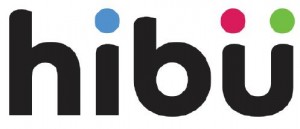
The global directories company Yell Group, which is fighting a rapidly declining core business as it shifts to new digital products, has announced it will be changing its name to Hibu, pending the approval of its shareholders in July.
The name change is in keeping with the recent practice in Yellow Pages of changing the corporate brand in order to enable the company to pivot into new product areas without the “baggage” of the Yellow Pages label. From this logic was born Sensis, Truvo, Eniro and Idearc, among others. Most of these players used brand consulting firms to create the names, while another company following the trend, Israel’s Golden Pages, adopted its new Zap brand from a comparison shopping engine that it acquired.
A common feature of these new corporate names is that they are essentially meaningless, so that with effective marketing, a company can apply meaning to them. In general, however, transforming the name has been easier than transforming the business.
Idearc is no longer used; it’s now called SuperMedia. Eniro was successful in building brand awareness for its name in the Nordic markets, but the company recently adopted one of its regional brands, Kvasir, as its brand for new digital products, suggesting Eniro has become associated with the business’ legacy products. Hibu’s success depends on Yell effectively and authentically transforming its business and associating the new brand with a company that is fully digital, not one that is straddling traditional and new media.
Yell has been undergoing a radical transformation since its leadership changed with the 2011 retirement of John Condron. Current CEO Mike Pocock is trying to shift the business from a directory publisher to a provider of local e-marketplaces.
The financial results announced Tuesday underscore the company’s urgency of finding new revenue streams. The company’s situation is made worse by a nagging debt load, which has prompted Yell to retain Goldman Sachs and Greenhill to help it build a new capital structure. Further, Yell wrote down the value of its main assets, which contributed to a GBP 1.4 billion loss for the year.
For the year ended March 31, 2012, Yell Group reported total revenues of GBP 1.61 billion, down 14 percent from GBP 1.88 billion in FY20112. The company’s core revenues, which it defines as print and online directories across all its markets, are falling at an accelerating pace, while its new digital products are growing nicely, but from a small base. Unless Yell can stabilize its core, it is going to need a lot more revenues from new products to turn things around, which helps explain the company’s urgent pace of new partnerships and acquisitions to add new products to the sales bag.
We will offer a more detailed analysis of Yell’s results in an upcoming brief for clients of The Kelsey Report.
This Post Has One Comment
Leave a Reply
You must be logged in to post a comment.

A change in name is just the start.
The real test will be how well they are able to motivate their staff to truly embrace this change. I think that one of the biggest challenges that legacy YP businesses have is maintaining staff morale whilst their core business continues to shrink. Sure the people in the new e-marketplaces divisions will be motivated by their big growth, however everyone else will still have their eye on the shrinking print revenues (and their shrinking bonus payouts as a result).
I think that this is where the pure digital players will come to the fore. Its much easier to maintain growth when your entire workforce is motivated and inspired by where your business is heading.